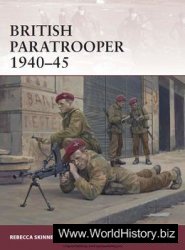The marriage between Henry and Eleanor had a lot of drama and arguments, intrigue and unfaithfulness, but in one of the few letters that we have from Eleanor, she does admit that her marriage to Henry was “a much happier one than my marriage to Louis.” It does appear that they loved each other in their own way and definitely respected each other. But the lure of power, and Eleanor’s own need to control her own life and children, got in the way of domestic peace in the royal household. For example, when the young Henry quarreled with his father in 1173, Eleanor took her son’s side and defended and backed him openly. The king had not allowed young Henry any real power, thus making his son angry and resentful. They fought, and the king forced his son to accompany him north to Normandy, but at Chinon, where they had stopped overnight, the Young King escaped his house arrest and fled south again to Poitou and Eleanor’s court. There, he plotted with Eleanor and his brothers Richard and Geoffrey to take over the throne of England.
The revolt of 1173-74 was a family quarrel made large: the king ordered his family to join him, but his sons fled to Paris to seek the help of King Louis in their revolt. Eleanor intended at first to stay in Poitiers, but, upon hearing that Henry was marching south, she decided to flee to Paris disguised as a man. She was captured and handed over to her husband, and he, realizing her deep influence upon their sons, decided to imprison her—an imprisonment that would last for 16 years. Henry disbanded her court at Poitiers and sent the queen to live at Salisbury Castle, but he allowed his sons to make peace with him as long as they promised to obey him. We do not have many records of Eleanor for the next 10 years, although we know she was moved around to various locations in England and was released to see her children on occasions such as Easter and Christmas.
Here we must mention Henry’s mistress, Rosamund Clifford. A great beauty, Rosamund had first met Henry in 1166, and they began an affair in 1173—an affair that was so deeply emotional that Henry considered divorcing Eleanor, and he had no problem flaunting Rosamund in front of his wife in 1175 so that Eleanor would become angry and try to annul the marriage, but Eleanor was too wise to be provoked. Rosamund died suddenly in 1176, and rumors soon arose—and suspicions remain—that the queen had Henry’s mistress poisoned for revenge.
Henry the Young King again fought with his father in 1183, but this time the end was not reconciliation, but death. His angry father cut off his allowance, and so Henry tried to relieve his debts by plundering the shrine of Rocaman-dour; not only did his plan fail, but he contracted dysentery. When Henry realized he was dying, he sent his father a message to free his mother, then he lay down on a bed of ashes to show his penitence and died on June 11, aged 28. After the Young King’s death, Eleanor was allowed more freedom—not complete freedom, as she always had to travel with a warden—but freedom enough. In 1184 she traveled to France to tour her lands, then returned to England at Christmas to spend the holidays with Richard, John, and Geoffrey (the historical setting of James Goldman’s famous play/film, The Lion in Winter).




 World History
World History









